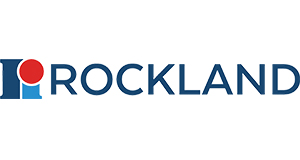rMouse VEGF-165 Protein
rMouse VEGF-165 Protein
SKU
ROC010-001-B99-0010
Packaging Unit
10 µg
Manufacturer
Rockland
Availability:
loading...
Price is loading...
Application Note: Endothelial Growth Factor-165 Recombinant Protein has been tested by SDS-PAGE and biological activity and is suitable as a control for polyclonal or monoclonal anti-Endothelial Growth Factor-165 in immunological assays.
General Disclaimer Note: This product is for research use only and is not intended for therapeutic or diagnostic applications. Please contact a technical service representative for more information. All products of animal origin manufactured by Rockland Immunochemicals are derived from starting materials of North American origin. Collection was performed in United States Department of Agriculture (USDA) inspected facilities and all materials have been inspected and certified to be free of disease and suitable for exportation. All properties listed are typical characteristics and are not specifications. All suggestions and data are offered in good faith but without guarantee as conditions and methods of use of our products are beyond our control. All claims must be made within 30 days following the date of delivery. The prospective user must determine the suitability of our materials before adopting them on a commercial scale. Suggested uses of our products are not recommendations to use our products in violation of any patent or as a license under any patent of Rockland Immunochemicals, Inc. If you require a commercial license to use this material and do not have one, then return this material, unopened to: Rockland Inc., P.O. BOX 5199, Limerick, Pennsylvania, USA.
Other Performance Data: Endotoxin Level: Measured by kinetic LAL analysis and is typically ≤ 1 EU/μg protein. Biologic Activity: The activity is determined by the dose-dependent proliferation of human umbilical vein endothelial cells (HUVEC) and is typically 1-5 ng/mL.
Physical State: Lyophilized
Purity and Specificity: Vascular Endothelial Growth Factor-165 purity was determined to be greater than 95% as determined by HpLC, analysis by UV-Spectroscopy at 280nm, and by reducing and non-reducing SDS-pAGE.
Background: Vascular Endothelial Growth Factor-A (VEGF-A) was originally isolated from tumor cells and is produced by a wide variety of cell types. In addition to stimulating vascular growth and vascular permeability, VEGF-A may play a role in stimulating vasodilation via nitric oxide-dependent pathways. VEGF-A has several variants, VEGF-165 being the most abundant. Rat and bovine VEGF are one amino acid shorter than the human factor, and the bovine and human sequences show a homology of 95%. Recombinant mouse VEGF-165 is a non-glycosylated, disulfide-linked homodimer, containing 165 amino acids, with a molecular weight of 39 kDa.
Low Endotoxin: Yes
Other: User Optimized
General Disclaimer Note: This product is for research use only and is not intended for therapeutic or diagnostic applications. Please contact a technical service representative for more information. All products of animal origin manufactured by Rockland Immunochemicals are derived from starting materials of North American origin. Collection was performed in United States Department of Agriculture (USDA) inspected facilities and all materials have been inspected and certified to be free of disease and suitable for exportation. All properties listed are typical characteristics and are not specifications. All suggestions and data are offered in good faith but without guarantee as conditions and methods of use of our products are beyond our control. All claims must be made within 30 days following the date of delivery. The prospective user must determine the suitability of our materials before adopting them on a commercial scale. Suggested uses of our products are not recommendations to use our products in violation of any patent or as a license under any patent of Rockland Immunochemicals, Inc. If you require a commercial license to use this material and do not have one, then return this material, unopened to: Rockland Inc., P.O. BOX 5199, Limerick, Pennsylvania, USA.
Other Performance Data: Endotoxin Level: Measured by kinetic LAL analysis and is typically ≤ 1 EU/μg protein. Biologic Activity: The activity is determined by the dose-dependent proliferation of human umbilical vein endothelial cells (HUVEC) and is typically 1-5 ng/mL.
Physical State: Lyophilized
Purity and Specificity: Vascular Endothelial Growth Factor-165 purity was determined to be greater than 95% as determined by HpLC, analysis by UV-Spectroscopy at 280nm, and by reducing and non-reducing SDS-pAGE.
Background: Vascular Endothelial Growth Factor-A (VEGF-A) was originally isolated from tumor cells and is produced by a wide variety of cell types. In addition to stimulating vascular growth and vascular permeability, VEGF-A may play a role in stimulating vasodilation via nitric oxide-dependent pathways. VEGF-A has several variants, VEGF-165 being the most abundant. Rat and bovine VEGF are one amino acid shorter than the human factor, and the bovine and human sequences show a homology of 95%. Recombinant mouse VEGF-165 is a non-glycosylated, disulfide-linked homodimer, containing 165 amino acids, with a molecular weight of 39 kDa.
Low Endotoxin: Yes
Other: User Optimized
| SKU | ROC010-001-B99-0010 |
|---|---|
| Manufacturer | Rockland |
| Manufacturer SKU | 010-001-B99-0010 |
| Package Unit | 10 µg |
| Quantity Unit | STK |
| Application | SDS-PAGE |
| Conjugate | Unconjugated |
| Product information (PDF) | Download |
| MSDS (PDF) |
|

 Deutsch
Deutsch










